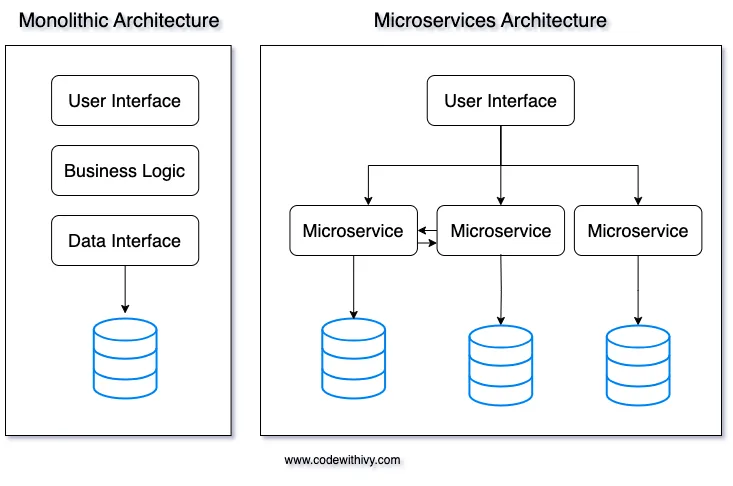
What was before?
A decade ago, the development world struggled with the limitations of monolithic applications, which were notorious for their costly, time-consuming setup, scant continuous integration support, and nightmarish debugging processes. In pursuit of more agile development cycles, companies embraced virtual machines to break down these monolithic applications into multiple microservices. This transition meant applications were no longer bound to specific pieces of hardware, enhancing flexibility and speed. However, this evolution brought its own challenges, notably the intricate management of VMs, which required specialized expertise and led to increased operational costs.

Then Docker comes into play. If you encapsulate your application within a container, it isolates the application’s complexity from the underlying infrastructure, simplifying the infrastructure and making the application easier to distribute. Compared to the virtual machine approach, Docker significantly enhances efficiency and reduces complexity.
What is Docker?
Docker is a platform that allows you to build, ship, and run any app, anywhere.
Docker enables open and flexible application development, allowing for reliable and consistent deployment across various environments without the necessity of learning new programming languages or investing in expensive hardware. By packaging your application in a Docker container, it undergoes a standardized pipeline, resulting in a single output that can be utilized on any platform. Docker is a comprehensive platform designed to build, ship, and run applications seamlessly, anywhere.

Why use Docker?
The short answer is efficiency and cost savings.
Docker streamlines development and deployment, offering strategic advantages for businesses aiming for efficiency. It simplifies debugging by allowing for scripted documentation of steps, isolating processes from the host environment to minimize debugging efforts.
Key Benefits of Embracing Docker:
- Reduced Debugging Overhead: Docker’s containerization allows you to encapsulate your entire system, making it easier to debug issues on the go—even when offline.
- Offline Full-Stack Productivity: With Docker, your development doesn’t stop when you lose internet access. You can run your entire stack on your laptop, wherever you are.
- Simplified Network Modeling: Testing network interactions doesn’t require expensive hardware or complex setups. Docker enables you to emulate networks of hundreds or thousands of nodes on a single machine.
- Facilitating Microservices Architecture: By breaking down a system into smaller, manageable parts, Docker helps in adopting a microservices architecture, making your applications more flexible and scalable.
- Effortless Software Packaging: Docker images, which have minimal dependencies, ensure your software runs consistently across any modern Linux system, eliminating the “works on my machine” problem.
- Rapid Prototyping: Docker’s ability to create isolated environments quickly makes it ideal for testing new ideas without disrupting your existing setup.
- A Lightweight Alternative to VMs: Docker containers can often replace virtual machines, offering faster startup times, reduced resource usage, and easier sharing of changes.